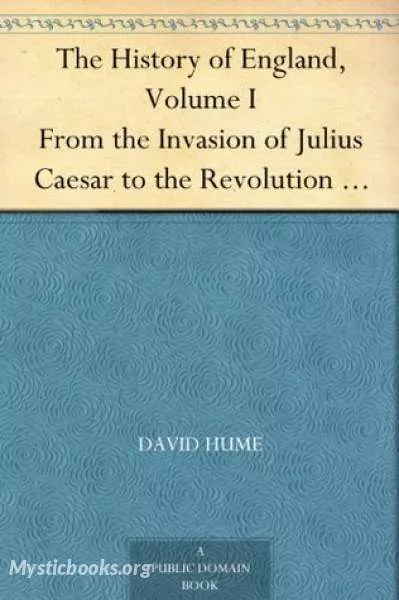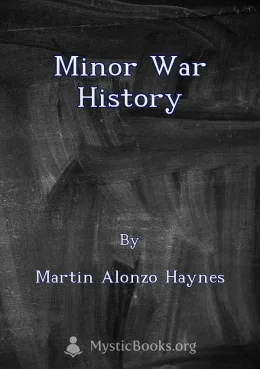
History of England from the Invasion of Julius Caesar to the Revolution of 1688, Volume 1C
by David Hume
'History of England from the Invasion of Julius Caesar to the Revolution of 1688, Volume 1C' Summary
He wrote of the Revolution: "By deciding many important questions in favour of liberty, and still more, by that great precedent of deposing one king, and establishing a new family, it gave such an ascendent to popular principles, as has put the nature of the English Constitution beyond all controversy". Thus Hume is at odds with those who argue that the British Constitution is entirely evolutionary, and did not emerge from a revolution, just like the later American and French Constitutions, and the earlier Dutch Constitution.
The source of this antinomian interpretation of British freedom can be traced in Hume's account of the revolutionary debates themselves. William of Orange had been invited to invade by a coalition of English Whigs and Tories. To placate the latter's maxim that "the throne was never vacant", or in modern parlance the monarch never dies, the fiction was agreed that King James would be said to have abdicated. It fell to the Scottish Parliamentary Convention, meeting a month after the English one: "in a bold and decisive vote", to declare "that king James, by his maladministration, and his abuse of power, had forfeited all title to the crown". Hume wanted to present the UK as having a modern constitution. He did not see it as something that stretched back seamlessly to Magna Carta or the laws of King Alfred.
The narrative ends with a parliamentary convention annexing to the settlement "a declaration of rights, where all the points, which had, of late years, been disputed between king and people, were finally determined; and the powers of the royal prerogative were more narrowly circumscribed and more exactly defined, than in any former period of the English government". In fact Britain has two declarations of right from this period. The Bill of Rights is (or was) the basic law of England, the Claim of Right that for Scotland.
There are important differences between these little studied declarations. Where the Bill of Rights states that the King cannot make laws without the consent of Parliament, the Claim of Right says that all assertions of a right to rule above the law are themselves against the law. The Bill of Rights was inspired by John Locke. Behind the Claim of Right can be detected the guiding hand of James Dalrymple, 1st Viscount of Stair 1619–1695. Hume studied law as a student at Edinburgh. He implies that he neglected this study. This must be taken with a pinch of salt. He may have wanted to avoid giving the lay reader the impression that he had written a history just for lawyers like William Blackstone. What is certain is that he names two of the founders of Roman Dutch law, Johannes Voet and Arnold Vinnius, in the same breath as Cicero and Virgil. Cicero was, of course, a lawyer. The standard work for a Scottish law student to study was, then as now, "Stair's Institutions of the laws of Scotland".
Hume names neither of the unamended constitutions of 1689. He wanted a new constitution for the United Kingdom to flesh out these outline declarations. He set out his proposals in the essay Idea of a Perfect Commonwealth, which is a reworking of The Commonwealth of Oceana by the 17th-century Rutland visionary James Harrington. Leaving the extent of the Commonwealth and the location of its capital undecided, Hume's highly devolved scheme was "to have all the advantages both of a great and a little Commonwealth". In some ways it resembles the model of Presbyterian church government. Hume was no theorist of an unwritten constitution.
Book Details
Language
EnglishOriginal Language
EnglishPublished In
1754Authors

David Hume
Scotland
David Hume was a Scottish Enlightenment philosopher, historian, economist, librarian and essayist, who is best known today for his highly influential system of philosophical empiricism, scepticism, an...
Books by David HumeDownload eBooks
Listen/Download Audiobook
- Select Speed
Related books

Vices Are Not Crimes by Lysander Spooner
“Except those great crimes, which the few, calling themselves governments, practice upon the many, by means of organized, systematic extortion and tyr...

American Catholic Quarterly Volume 1 by Various
“American Catholic Quarterly” was a magazine published from 1876 to 1924. Founded by Herman J. Heuser and James A. Corcoran, the magazine focused on a...

Вехи-Сборник статей о русской интеллигенции (Vekhi) by Nikolai Berdyaev
«Вехи» — сборник философских эссе, написанных группой русских интеллектуалов в 1909 году. Авторы анализируют своё участие в революции 1905 года и кри...

Popular History of France from the Earliest Times vol 1 by François Pierre Guillaume Guizot
François Pierre Guillaume Guizot was a French historian, orator, and statesman. Guizot was a dominant figure in French politics prior to the Revolutio...

Irish Wit and Humor by Various
This book is a collection of humorous anecdotes from the biographies of four famous Irish figures: Jonathan Swift, John Philpot Curran, John O'Leary,...

Early Hanoverians by Edward Ellis Morris
'Early Hanoverians' by Edward Ellis Morris offers a concise yet comprehensive account of the reigns of the first two Hanoverian monarchs, George I and...

Journal of Nicholas Cresswell, 1774-1777 by Nicholas Cresswell
The Journal of Nicholas Cresswell, 1774-1777 is an account of the author's experiences as a British loyalist in America during the Revolutionary War....

Selections from the Speeches and Writings of Edmund Burke by Edmund Burke
This book presents a selection of speeches and writings by Edmund Burke, a prominent British statesman and philosopher. The work delves into Burke's p...

Manifest der Kommunistischen Partei by Karl Marx
Karl Marx und Friedrich Engels schrieben ihr Manifest im Dezember 1847, als Leitfaden fuer die grundsaetzlichen Prinzipien und Praktiken des Kommunism...

Minor War History by Martin Alonzo Haynes
This book, composed of personal letters written by a Civil War soldier to his future wife, offers a unique glimpse into the daily life of a soldier du...
Reviews for History of England from the Invasion of Julius Caesar to the Revolution of 1688, Volume 1C
No reviews posted or approved, yet...